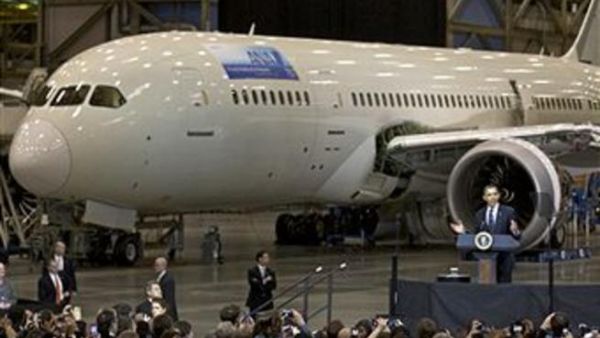The Middle East’s aviation industry is expected to grow by 11 percent in 2012 while cargo traffic is estimated to increase six percent, according to Majdi Sabri, regional vice president for Middle East and North Africa at International Air Transport Association (IATA). This compares with the eight percent growth the industry witnessed in 2011.
Speaking on the sidelines of the second Arab Aviation and Media Summit organised by Air Arabia at the American University of Sharjah on Monday, Sabri said air traffic and passenger loads in the region have stabilised in the recent months, with the Middle East's aviation sector registering its highest growth of 18.7 percent in February this year, when compared to regions like Latin America and Europe.
Cargo traffic, meanwhile, increased 13.7 percent from a year ago. Factors such as changes in management at regional air carriers following the Arab Spring to better implement processes, along with increasing capacities and additional routes supplement the improved outlook, other industry aviation executives who attended the summit pointed out.
The Middle East aviation industry registered a total profit of US$1bn in 2011. For 2012, passenger demand in the region is expected to grow 4.2 percent and profits from regional carriers are expected to touch US$500mn, according to IATA’s latest forecast. Over the next 15 years investments in new fleet by regional carriers are expected to touch US$200bn.
Speaking to Muscat Daily on Oman’s aviation industry, Abdul Wahab Teffaha, secretary general of Arab Air Carriers Organisation, said the sector could see double-digit growth between 2012 and 2013 due to increased investments in improving airport infrastructure and upcoming new airports.
Commenting on the rise of Middle East carriers following the Arab Spring, Adel Ali, chief executive officer of Air Arabia, said operators have emerged stronger but challenges persist due to increased fuel costs, lack of a better open-skies policy - or a free market for the airline industry - and lack of skilled manpower for technical maintenance of aircrafts.
“There should be more privatisation in the industry here and lesser regulations which will help improve profits. It will also take the sector to the next level of growth as seen in markets like Europe and the US.”
According to Peter Heath, chancellor of American University of Sharjah, said consolidation in the aviation sector in region is inevitable as many operators are still working on old models.
When questioned if delays in production of new planes by Airbus and Boeing could affect the industry, Adel Ali said these delays have not yet resulted in challenges for carriers in the region as most operators are still getting enough new aircrafts and that a six-eight month delay of new fleet has already been factored in.
Speaking about the future of liberal aviation policies in the Middle East, Teffaha said that the European Union is working on bilateral open-skies agreements with individual air carriers in the region such as Egypt and Lebanon that could change the landscape of the sector, but rued that many Arabian peninsular countries have still not been targeted for such agreements.








